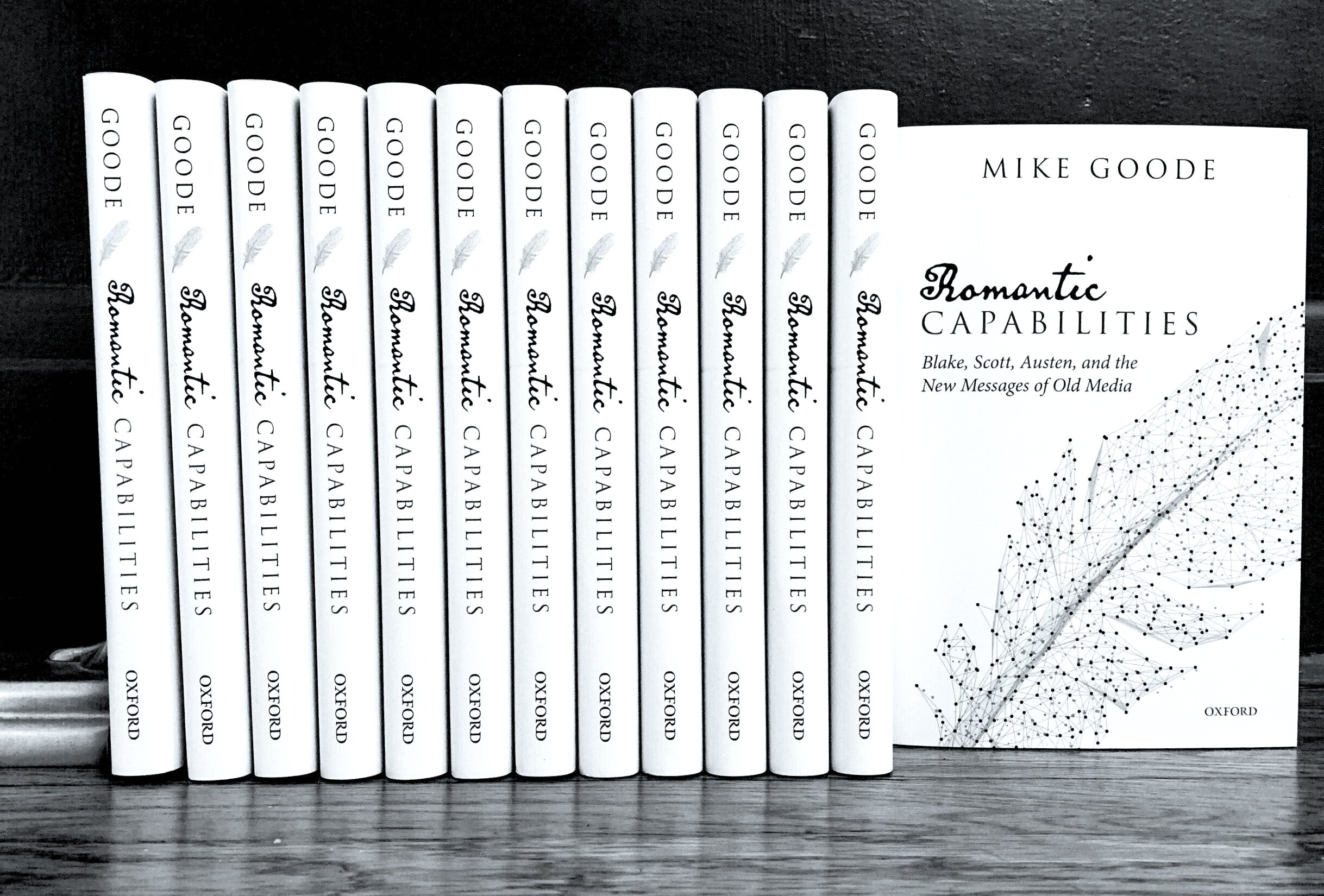
Books
ROMANTIC CAPABILITIES
Romantic Capabilities discusses the relationship between popular new media uses of literary texts. Devising and modelling an original critical methodology that bridges historicist literary criticism and reception studies with media studies and formalism, this volume contends that how a literary text behaves when it encounters new media reveals medial capabilities of the text that can transform how we understand its significance for the original historical context in which it was created. Following an introductory theoretical chapter that explains the book's unconventional approach to the archive, Romantic Capabilities analyzes significant popular "media behaviors" exhibited by three major Romantic British literary corpuses: the viral circulation of William Blake's pictures and proverbs across contemporary media, the gravitation of Victorian panorama painters and 3D photographers to Walter Scott's historical fictions, and the ongoing popular practice of writing fanfiction set in the worlds of Jane Austen's novels and their imaginary country estates. The result is a book that reveals Blake to be an important early theorist of viral media and the law, Scott's novels to be studies in vision that helped give rise to modern immersive media, and Austenian realism to be a mode of ecological design whose project fanfiction grasps and extends. It offers insight into the politics of virality, the dependence of immersion on a sense of frame, and the extent to which eighteenth-century landscape gardening anticipated Deleuzian ideas of the "virtual" by granting existence to reality's as-yet-unrealized capabilities.
“Romantic Capabilities advocates analyzing what a text has become in one media ecology and leveraging it into a historicist research strategy for recovering and perhaps discovering for the first time what the text potentially was. I regard how a literary text behaves when it enters new media environments as an occasion for asking whether the text somehow medially hails this behavior.”
— Romantic Capabilities
SENTIMENTAL MASCULINITY AND THE RISE OF HISTORY
Sentimental Masculinity and the Rise of History, 1790-1890 challenges received accounts of the development of modern historical thought, arguing that, in Romantic and Victorian Britain, struggles over historical authority were as much disputes over the nature of proper masculinity as they were contests over ideas and interpretations. Drawing on primary materials from such diverse fields as political economy, moral philosophy, medicine, antiquarian study, and visual satire, Goode uncovers a Romantic historical tradition - one most influentially realized by historical novels - which held that historians must be manly and sentimental in order to understand history properly. Goode further shows how and why, by later in the nineteenth century, the bodies and feelings - but not the gender - of historians came to be regarded as irrelevant to their scholarly projects. The result is an unconventional account of the rise of history, one that focuses more on novelists, political philosophers, and caricaturists than on historians.
“In addition to handling a complicated discursive field with extraordinary clarity and command, Goode reveals an impressive erudition and command of related issues (for example, embodied feeling). Furthermore, he is especially deft and generous in engaging related scholarship. All first books should be this good.”
— William Galperin (Rutgers University), Wordsworth Circle
“…encompasses issues of historical theory, gender, periodicity and genre, and feels both wide-ranging and specific. It is yet another fascinating addition to a series (Cambridge Studies in Romanticism) which has in recent years been virtually unfailing in its objectives of widening, and profitably complicating, our sense of the long eighteenth century.”
— John Regan (Royal Holloway, University of London), Romanticism and Victorianism on the Net
“…makes a striking case for the role of feelings in thinking and writing about history…With its large and entertaining variety of sources, its fine historicized readings, and its convincing argument, Sentimental Masculinity and the Rise of History achieves its aims.”
— James Najarían (Boston College), Studies in Romanticism
“…a fascinating work on the relationship between sensibility and the history of the historical discipline.”
— Katie Barclay (University of Adelaide), Journal of Scottish Historical Studies
“…skillfully recuperates the national importance of feeling by historicizing historiography…[Sentimental Masculinity] has much to offer scholars interested in British historiography.”

